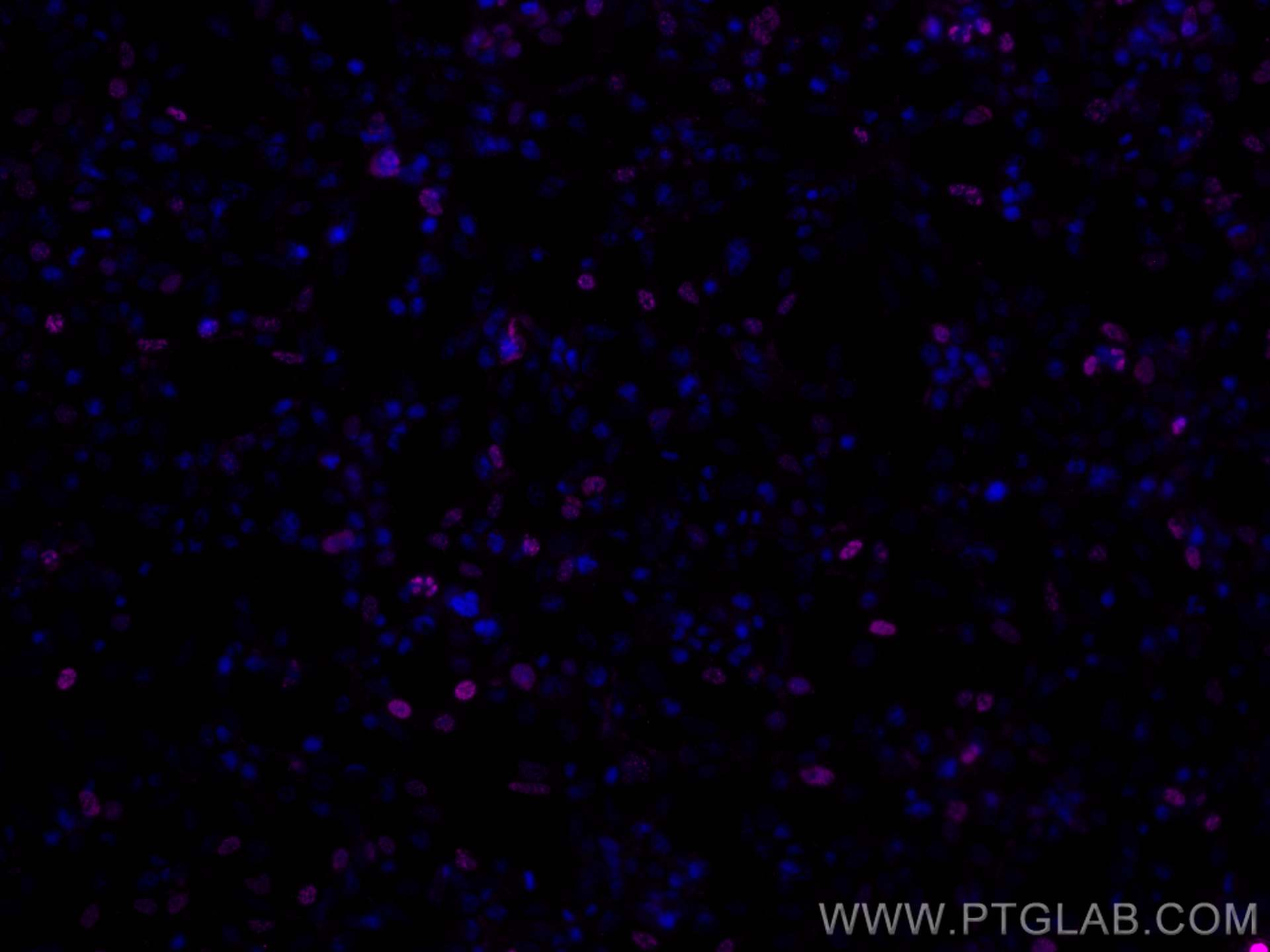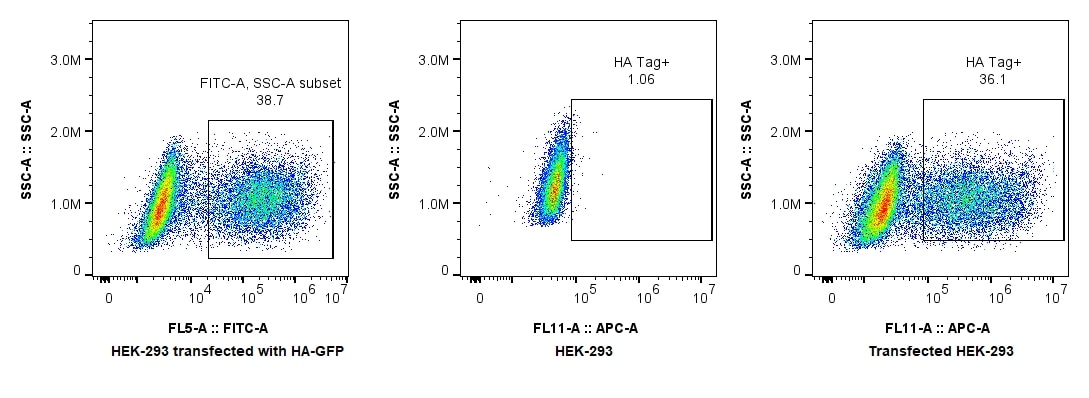Tested Applications
| Positive IF/ICC detected in | Transfected HEK-293 cells |
| Positive FC (Intra) detected in | Transfected HEK-293 cells |
Recommended dilution
| Application | Dilution |
|---|---|
| Immunofluorescence (IF)/ICC | IF/ICC : 1:300-1:1200 |
| Flow Cytometry (FC) (INTRA) | FC (INTRA) : 0.8 ug per 10^6 cells in a 100 µl suspension |
| It is recommended that this reagent should be titrated in each testing system to obtain optimal results. | |
| Sample-dependent, Check data in validation data gallery. | |
Product Information
CL647-66006 targets HA Tag in IF/ICC applications and shows reactivity with recombinant protein samples.
| Tested Reactivity | recombinant protein |
| Host / Isotype | Mouse / IgG1 |
| Class | Monoclonal |
| Type | Antibody |
| Immunogen |
Peptide Predict reactive species |
| Full Name | HA Tag |
| Calculated Molecular Weight | 1 kDa |
| Gene Symbol | |
| Gene ID (NCBI) | |
| RRID | AB_3086564 |
| Conjugate | CoraLite® Plus 647 Fluorescent Dye |
| Excitation/Emission Maxima Wavelengths | 654 nm / 674 nm |
| Form | Liquid |
| Purification Method | Protein G purification |
| UNIPROT ID | HATAG |
| Storage Buffer | PBS with 50% glycerol, 0.05% Proclin300, 0.5% BSA, pH 7.3. |
| Storage Conditions | Store at -20°C. Avoid exposure to light. Stable for one year after shipment. Aliquoting is unnecessary for -20oC storage. |
Background Information
Protein tags are a protein or peptide sequences located either on the C- or N- terminal of the target protein, which can facilitate solubility, detection, purification, localization, and expression of the target protein. The HA tag corresponds to amino acid residues YPYDVPDYA of a surface glycoprotein -human influenza virus hemagglutinin (HA). The HA tag is commonly used for a variety of research applications including chromatin immunoprecipitation, ELISA, flow cytometry, western blotting, immunocytochemistry/immunofluorescence among of others.
Protocols
| Product Specific Protocols | |
|---|---|
| FC protocol for CL Plus 647 HA Tag antibody CL647-66006 | Download protocol |
| IF protocol for CL Plus 647 HA Tag antibody CL647-66006 | Download protocol |
| Standard Protocols | |
|---|---|
| Click here to view our Standard Protocols |






